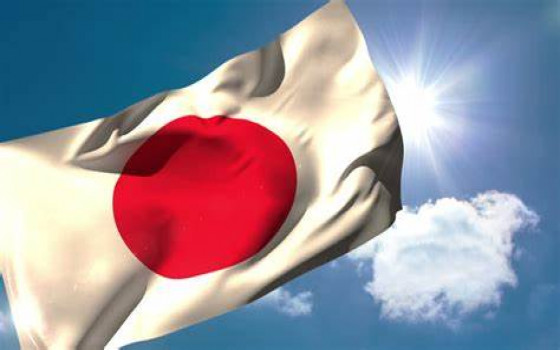
Japan and Australia sign historic security pact

- Europe and Arabs
- Saturday , 22 October 2022 13:58 PM GMT
Australia and Japan on Saturday signed a historic security pact aimed at countering China's military rise, exchanging more sensitive intelligence and strengthening military cooperation.
Prime Ministers Fumio Kishida and Anthony Albanese signed the agreement in the western Australian city of Perth, renewing an agreement struck 15 years ago when terrorism and arms proliferation were the biggest concerns.
The Australian Prime Minister praised the "joint declaration on security cooperation," as the agreement was called, stressing that this "historic text sends a strong signal to the region regarding our strategic alliance."
Australian officials said that under the agreement, the two countries agreed that the military forces would conduct joint exercises in northern Australia. They explained that the agreement "will expand and enhance defense cooperation and intelligence sharing."
Without mentioning China or North Korea by name, Kishida said the agreement was in response to an "increasingly harsh strategic environment".
Neither Australia nor Japan has extensive foreign intelligence networks and services equivalent to the US Central Intelligence Agency (CIA), British or Russian intelligence services.
But expert Bryce Wakefield believes that Australia and Japan have enormous capabilities in the areas of signal and geospatial intelligence, such as electronic eavesdropping and high-tech satellites that provide valuable intelligence on enemies.
Wakefield, director of the Australian Institute of International Affairs, said the deal could also have more significance as it provides Japan a model for accelerating intelligence relations with countries such as Britain.
Some see the agreement as a step on the way for Japan to join the powerful "Five Eyes" alliance to exchange intelligence information between Australia, Britain, Canada, New Zealand and the United States.
"Japan's ability to share signal information with a foreign country other than the United States is a watershed event," Ken Kotani, an expert on the history of Japanese intelligence at Nihon University, told AFP.
"This will strengthen the framework of the 'Quad' (Australia, India, Japan and the United States) and the first step for Japan's accession to the Five Eyes," he added.
A proposal of this kind was not even a few decades ago. But events in Japan's neighborhood forced Tokyo to review the country's pacifist policies developed in the aftermath of World War II.
In recent years, North Korea has repeatedly launched missiles over and around Japan, while China has built the world's largest navy, revamped the world's largest standing army, and amassed a nuclear and ballistic arsenal at Japan's gates.
- 'Leaks' -
But there are still obstacles to Tokyo's close security cooperation with allies.
Japan's intelligence-sharing with the United States and other allies has been bogged down by long-standing concerns about Tokyo's ability to securely handle and transfer sensitive classified materials.
"Let's put it frankly: Leaks traditionally happen in Japan," said Brad Williams, author of a book on Japanese intelligence policy and a professor at City University of Hong Kong.
Laws have been put in place to punish intelligence leaks more stringently, but for now Australia may have to pick out any information it passes on to Japan after obtaining it from the Five Eyes network.
The Japanese and Australian prime ministers also pledged more cooperation in the field of energy security.
Japan is a major importer of Australian gas and hopes to obtain hydrogen energy produced in Australia to try to compensate for the shortage of domestic energy production and dependence on fossil fuels.
A Japanese official said before the meeting that "Japan imports forty percent of its liquefied natural gas from Australia. Therefore, it is very important for Japan to have a stable relationship with Australia, in terms of energy."
Source: AFP












No Comments Found